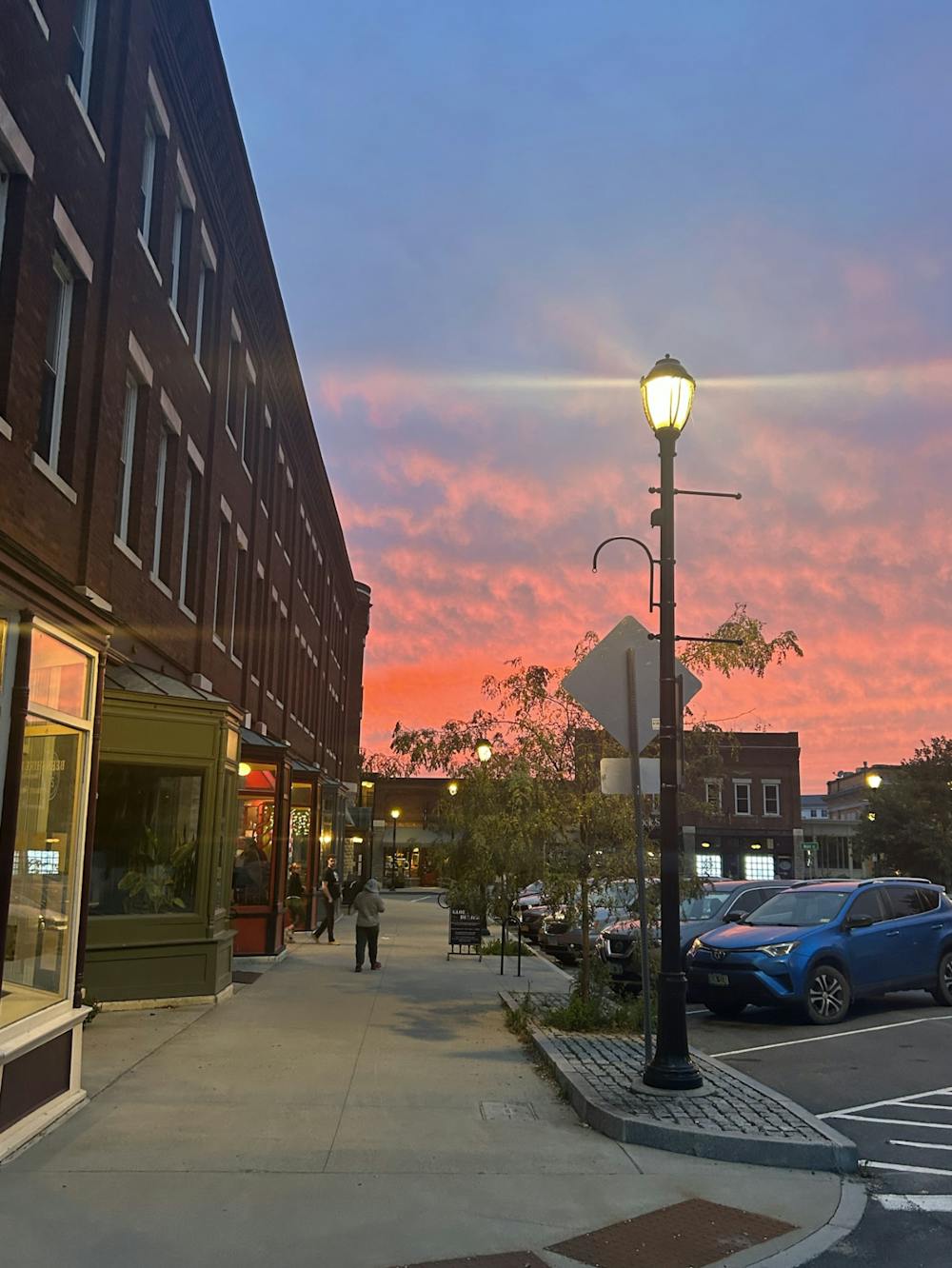The town of Middlebury has begun seeking signatories for its petition to renew the Downtown Improvement District Commission (DIDC) and its associated taxes for local business owners for the fourth time. Every seven years, the town must send out a petition asking for consent to an additional tax on downtown businesses meant to fund improvements to the downtown area; the current agreement will expire on June 30, 2025.
The goal of the DIDC — which has been successfully renewed three previous times — is to boost foot traffic and commerce in Middlebury, according to a statement by the town of Middlebury promoted in the Addison Independent.
Fred Dunnington, a former town planner in Middlebury, explained the history behind the DIDC, sharing that the town has faced recurring issues with limited access to downtown businesses and parking.
“Merchants felt that it was inadequate parking, so in order to raise funds to build parking lots, like the Froghollow Parking Lot, which was at that point not yet built, I proposed the idea of an assessment district, which would assess the downtown merchants whose properties were deficient in parking,” Dunnington said. “The idea is that the amount of taxation is not greater than the amount by which your property is benefited from the improvements.”
The DIDC primarily addresses downtown-based improvements such as the maintenance of sidewalks, the installation of light fixtures, the addition of new flags on the flag poles and general cosmetic and smaller infrastructural upkeeps.
Larger infrastructural changes are typically supplemented by funding from the state or federal government, depending on the nature of the project, according to Amey Ryan, a real estate broker with IJP Real Estate.
“There have been improvement projects that have been funded by BTrans, the state of Vermont, or the federal government, or the town of Middlebury. Those larger improvement projects are basically more infrastructure related, and are not anything that is within the DIDC wheelhouse,” Ryan said.
She added that there are contingencies to the petition that clarify how the money will be raised and what it will be spent on.
“It includes non-residential properties, so it is mostly just commercial and business properties, and the money is collected at the same time regular taxes are collected,” Ryan said. “The DIDC includes improvements that are made to the downtown, and then years ago, the DIDC recognized that the work the Better Middlebury Partnership was doing was sort of supplemental to the DIDC’s mission.”
Dunnington was involved in the original proposal to amend the charter with a new ordinance that provided funds through the additional tax to support the improvements of the downtown area.
Since 1996, the DIDC has raised nearly $30,000 every year, which was then matched by Downtown Grant funds.
Ryan also emphasized that the DIDC’s partnership with the Better Middlebury Partnership (BMP) has contributed to the increase of public-facing events in town, such as the Midd Summer Market, the Fall Family Weekend market that happened on Oct. 28, the upcoming annual Middlebury Car Show & Fall Festival and Very Merry Middlebury. The BMP is also in charge of the Middlebury Money Program.
Dunnington also supported renewing the petition in perpetuity.
“[I] proposed the idea that the term could continue until the business owners petition to do away with it, which is a term, in one sense,” Dunnington said.
An automatic continuous renewal of the petition has not yet been approved by the business stakeholders in town.
The board of the DIDC meets every year to determine how the funds will be utilized in the upcoming fiscal year. Dunnington explained that there are usually nine board members, including the town manager. For a renewal to pass, 65 of the 95 business constituents must sign the petition.
Dunnington shared that businesses farther from the main improvement areas feel that the taxes are less necessary.
“There are some people who, in the district, who are further away from the park improvements or the lighting, and they don’t see the benefits are so pertinent and direct to them, and you know, but attracting people to the downtown does increase business generally,” Dunnington added.
The renewal meeting scheduled on Oct. 8 will seek to extend the petition for an additional seven years to continue improving the downtown area.




